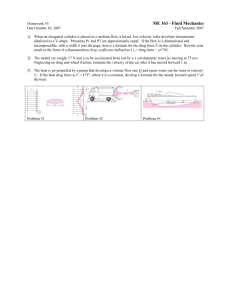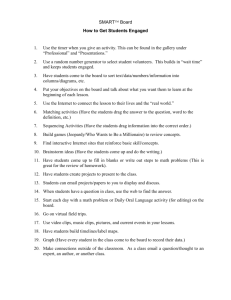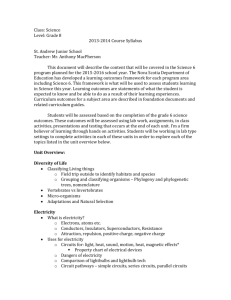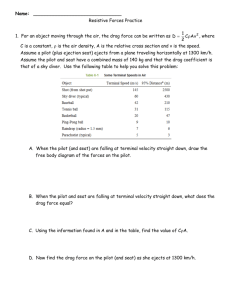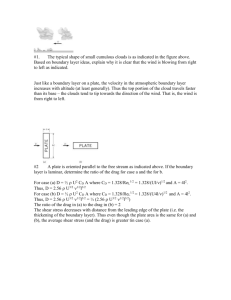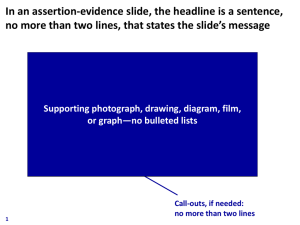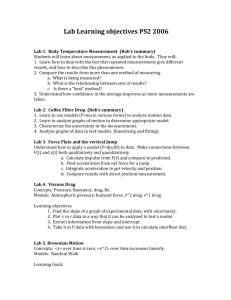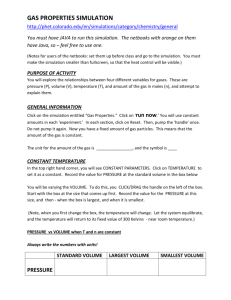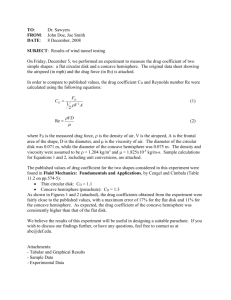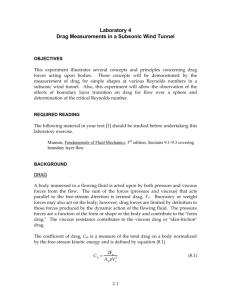HW14_solution
advertisement
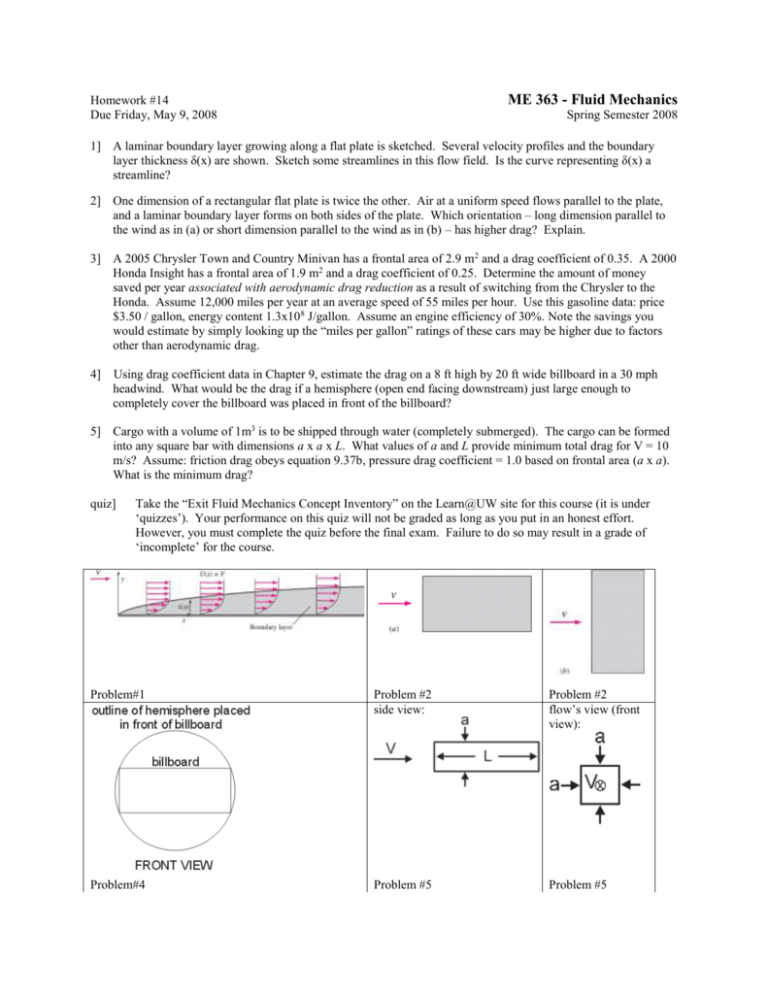
ME 363 - Fluid Mechanics Homework #14 Due Friday, May 9, 2008 Spring Semester 2008 1] A laminar boundary layer growing along a flat plate is sketched. Several velocity profiles and the boundary layer thickness δ(x) are shown. Sketch some streamlines in this flow field. Is the curve representing δ(x) a streamline? 2] One dimension of a rectangular flat plate is twice the other. Air at a uniform speed flows parallel to the plate, and a laminar boundary layer forms on both sides of the plate. Which orientation – long dimension parallel to the wind as in (a) or short dimension parallel to the wind as in (b) – has higher drag? Explain. 3] A 2005 Chrysler Town and Country Minivan has a frontal area of 2.9 m2 and a drag coefficient of 0.35. A 2000 Honda Insight has a frontal area of 1.9 m2 and a drag coefficient of 0.25. Determine the amount of money saved per year associated with aerodynamic drag reduction as a result of switching from the Chrysler to the Honda. Assume 12,000 miles per year at an average speed of 55 miles per hour. Use this gasoline data: price $3.50 / gallon, energy content 1.3x108 J/gallon. Assume an engine efficiency of 30%. Note the savings you would estimate by simply looking up the “miles per gallon” ratings of these cars may be higher due to factors other than aerodynamic drag. 4] Using drag coefficient data in Chapter 9, estimate the drag on a 8 ft high by 20 ft wide billboard in a 30 mph headwind. What would be the drag if a hemisphere (open end facing downstream) just large enough to completely cover the billboard was placed in front of the billboard? 5] Cargo with a volume of 1m3 is to be shipped through water (completely submerged). The cargo can be formed into any square bar with dimensions a x a x L. What values of a and L provide minimum total drag for V = 10 m/s? Assume: friction drag obeys equation 9.37b, pressure drag coefficient = 1.0 based on frontal area (a x a). What is the minimum drag? quiz] Take the “Exit Fluid Mechanics Concept Inventory” on the Learn@UW site for this course (it is under ‘quizzes’). Your performance on this quiz will not be graded as long as you put in an honest effort. However, you must complete the quiz before the final exam. Failure to do so may result in a grade of ‘incomplete’ for the course. Problem#1 Problem #2 side view: Problem #2 flow’s view (front view): Problem#4 Problem #5 Problem #5 Problem 1 solution: Problem 2 solution: Problem 3 solution It costs about $340 more per year just to push the air around. A snapshot of the calculations is below. The corresponding .xls file is included in the same folder in which this .doc file is located. Problem 4 solution The aspect ratio of the billboard is 2.5 From Figure 9.10, the corresponding CD value is about 1.15. The drag is 1/2 ρ V2 A CD= 0.5*(1.2kg/m3)*(13.4m/s)2*(14.864 m2)*(1.15) = 1842 N The diameter of the hemisphere that circumscribes this billboard is d=sqrt(8ft^2+20ft^2)=21.54ft = 6.565 m. The corresponding frontal area of the hemisphere is πd2/4=33.85m2., or about 228% of the area of the original billboard. Therefore, although the drag coefficient is reduced by a factor of 3, the total drag is reduced only to 75% of the original value because the frontal area is so much higher. The drag with the hemisphere is 1/2 ρ V2 A CD= 0.5*(1.2kg/m3)*(13.4m/s)2*(33.85 m2)*(0.38) = 1386 N Problem 5 solution The corresponding .xls file is included in the same folder in which this .doc file is located. A screenshot is given below. Tools…solver was used to find the value of a that produced the minimum total drag
